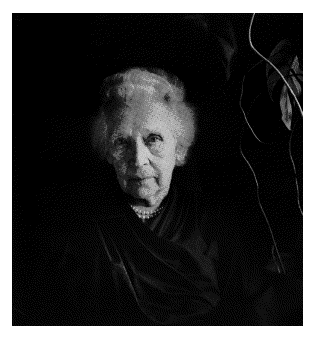I Say
Talking with Patients
About Spirituality
Elizabeth Johnston Taylor
(Templeton Foundation)

The author's suggested response is:
- You've been fervently petitioning God to cure you, and now, perhaps, you're wondering if you're doing it in the right way.
Then, says Ms. Taylor:
How do you create a restatement?
"Assume you do not understand anything about the patient."
Not bad advice. Other than giving her a quick run-down on Dostoevsky, Camus, Nietzsche, and basic Existentialism: "Assume that you do not understand anything about the patient." Nor the meaning of pain, sickness, woe.
Here's another:
- You enter the hospital room of a woman whom you've never met before. You know she has been diagnosed with a terminal illness. You knock and hear her voice, muffled, a bit slow, and sounding irritated. You find her curled up in a ball, eyes shut, covers pulled up to her ears. The lights are off and the shade is partially drawn. How would you apply the above information about establishing rapport?
Just below there are four long, blank lines. In the middle of the page. Waiting for you or me or some anonymous "helper" to fill in an answer.
As if there were an answer.
We have here a lady who is in physical pain, emotional pain, and the ultimate pain. And you have to make talk with her. The implied directives here are:
- You and I are helpers and here is a woman who needs help.
- We can help her by saying something, or asking a question.
- That's why the hospital (or social services, or the church) pays us.
But the set-up may well be skewed. Like the very concept of "helpers," and the belief that you and I can solve things with words.
Taylor does not point out that words help helpers to stay as far away as possible from another's misery. Any dummy will tell you that what is needed is not a speech, certainly not some dumbassed question, but the simple presence of another human, someone with enough soul to let this poor befuddled lady know that we are in it together, that life is a bitch, that it can be famously unjust, and there is not a goddamn thing we can do with by and for it.
 The author's suggested solution, "Answers for Exercises" --- found later in the book, on page 132 --- tells us that the professional should declare,
The author's suggested solution, "Answers for Exercises" --- found later in the book, on page 132 --- tells us that the professional should declare,
- "I'm ______, and I'm so sorry to hear about the diagnosis." Then, allow long pause for her to respond, if she does not, "What are you thinking?"
The woman is in pain, dying, alone with all the shades all the shades drawn and here comes this busybody asking, "What are you thinking?"
Me? Forget this social working business. I suspect the best we can do is to come in, sit down, sigh ... and burst into tears.
Or even better --- climb right up on the bed, grab hold the poor anguished soul, grab her tight ... and then burst into tears.